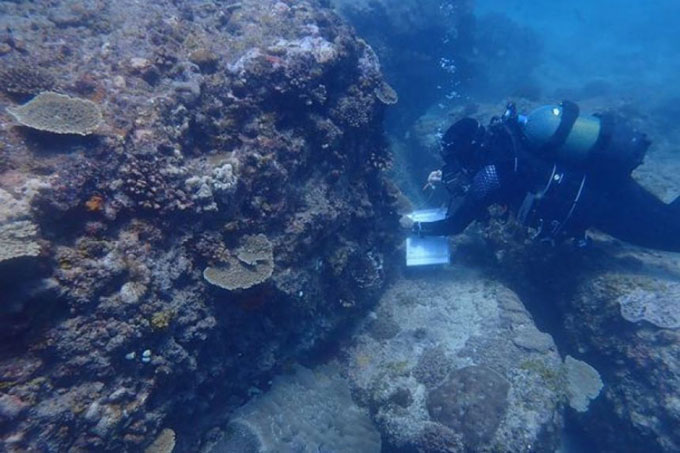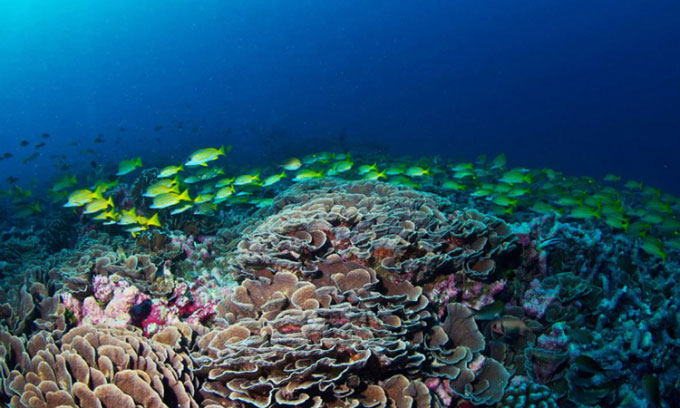A New Study Warns That Coral Reefs in the Western Indian Ocean Could Completely Disappear Within 50 Years Without Urgent Action.
A study published in the journal Nature Sustainability on December 6 was conducted by the Cordio East Africa Ocean Research Institute, led by founder David Obura, in collaboration with the International Union for Conservation of Nature (IUCN). This is the first time scientists have assessed the vulnerability of individual coral reefs across the vast waters of the western Indian Ocean, while also identifying the main threats.

A biologist examines coral reefs in the western Indian Ocean. (Photo: CORDIO East Africa).
Obura’s team warns that coral reefs off the eastern coast of Africa and along island nations such as Mauritius and Seychelles face the risk of “complete and irreversible collapse” in the next five decades due to rising sea temperatures and overexploitation.
“This finding is quite serious! There is no place in the region where coral lives intact. All have degraded to some extent, and that will continue,” Obura told AFP.
The research team assessed 11,919 km2 of coral reefs in the western Indian Ocean (which accounts for about 5% of the total coral area globally) and noted that the areas surrounding picturesque island nations, including Mauritius, Seychelles, Comoros, and Madagascar—home to many famous ecotourism spots—are at the highest risk of collapse.
Coral only covers a very small part of the ocean floor, approximately 0.2%, but they are home to at least a quarter of marine species. In addition to anchoring marine ecosystems, they provide protein, create jobs, and protect hundreds of millions of people worldwide from storms and coastal erosion.

Coral reefs provide shelter for a wide variety of marine organisms. (Photo: IUCN).
“Healthy coral reefs are incredibly valuable. Their loss is a double blow to biodiversity, as well as to all the coastal economies that depend on them,” Obura emphasized.
Climate change is the greatest threat to coral health in the western Indian Ocean. Oceans absorb more than 90% of the excess heat from greenhouse gas emissions, leading to massive marine heatwaves that push many coral species beyond their tolerance limits.
In October, the largest global survey of coral health to date revealed that global warming, combined with pollution and blast fishing practices, has wiped out 14% of the world’s coral reefs from 2009 to 2018.


















































